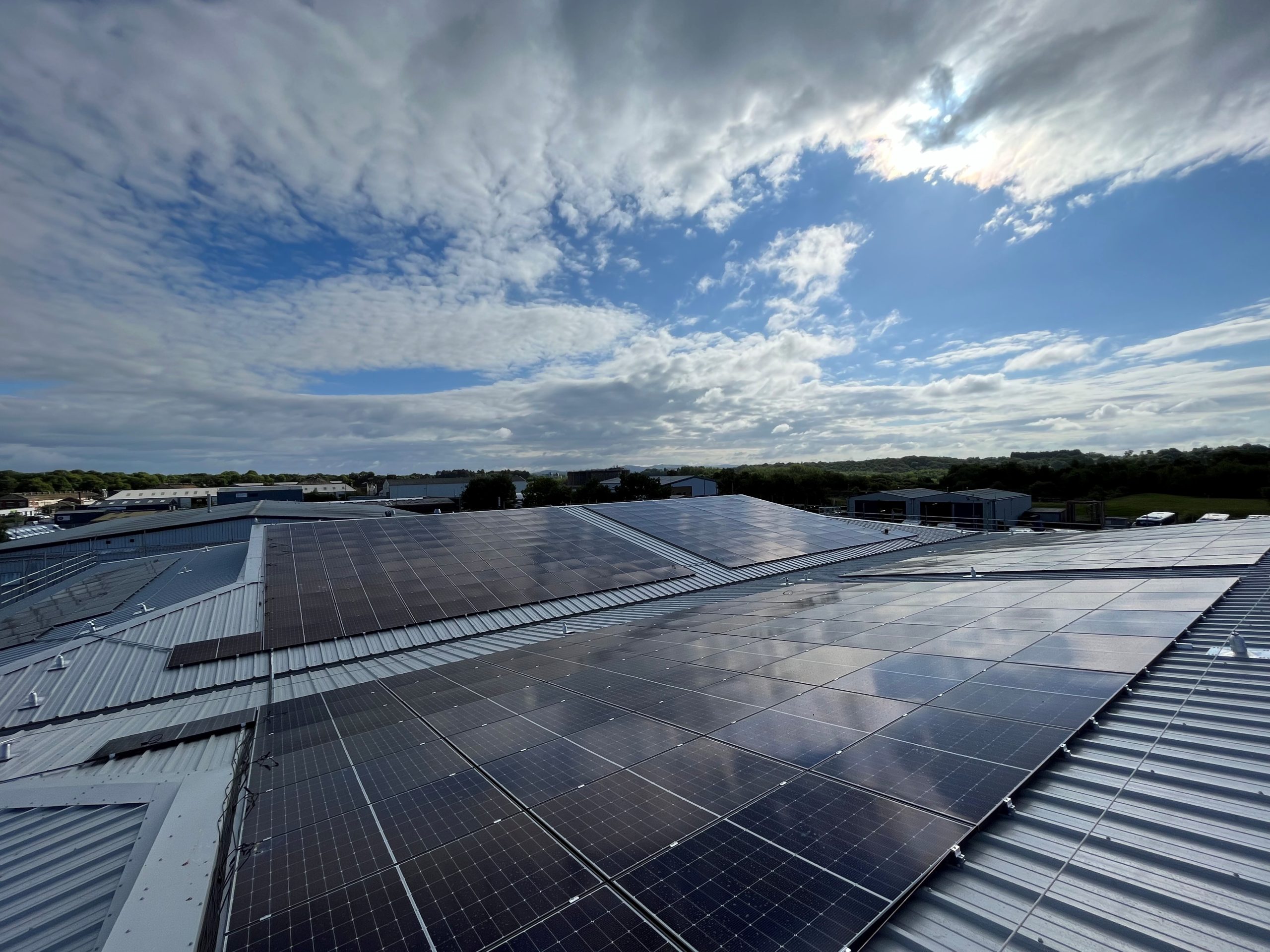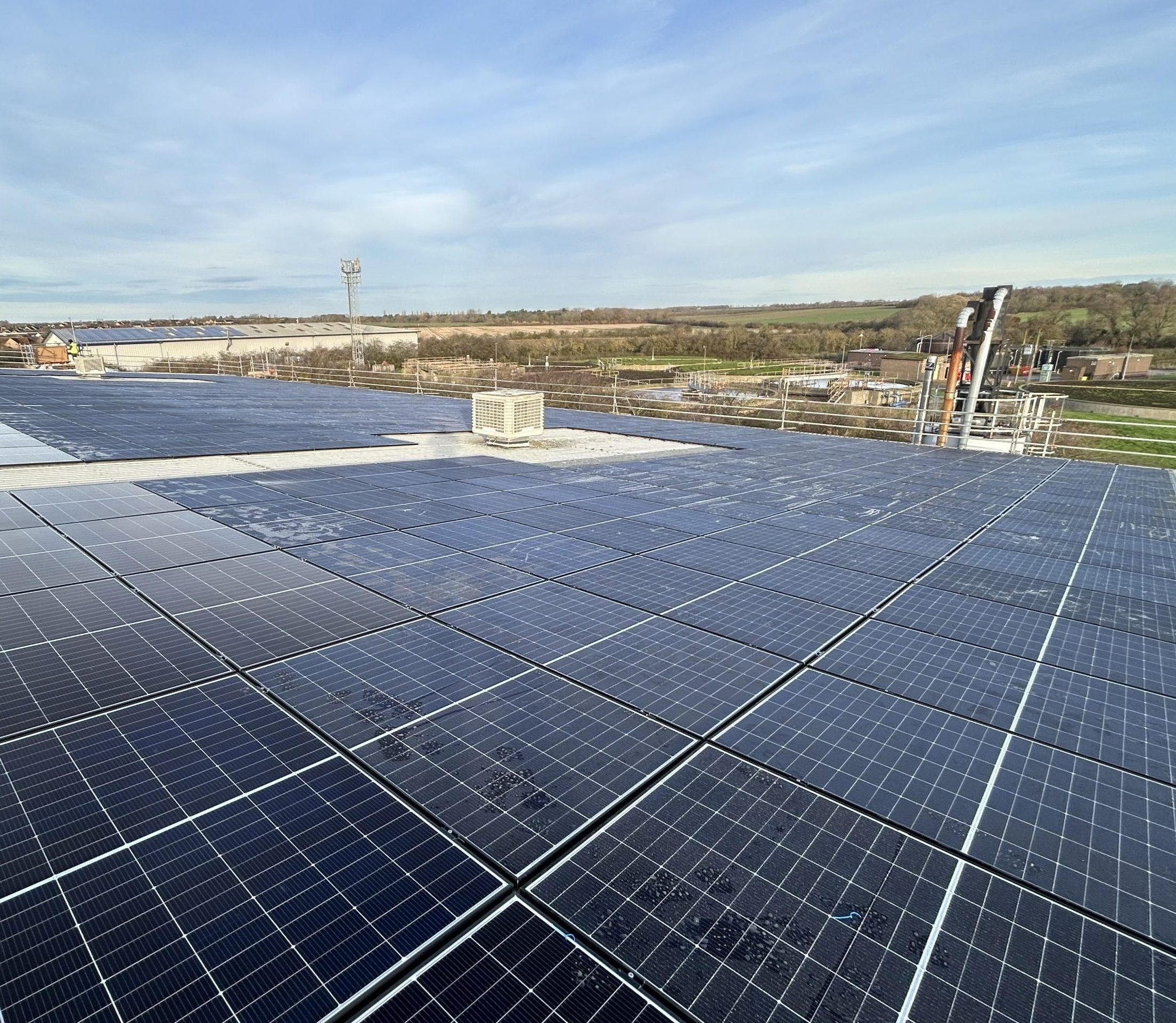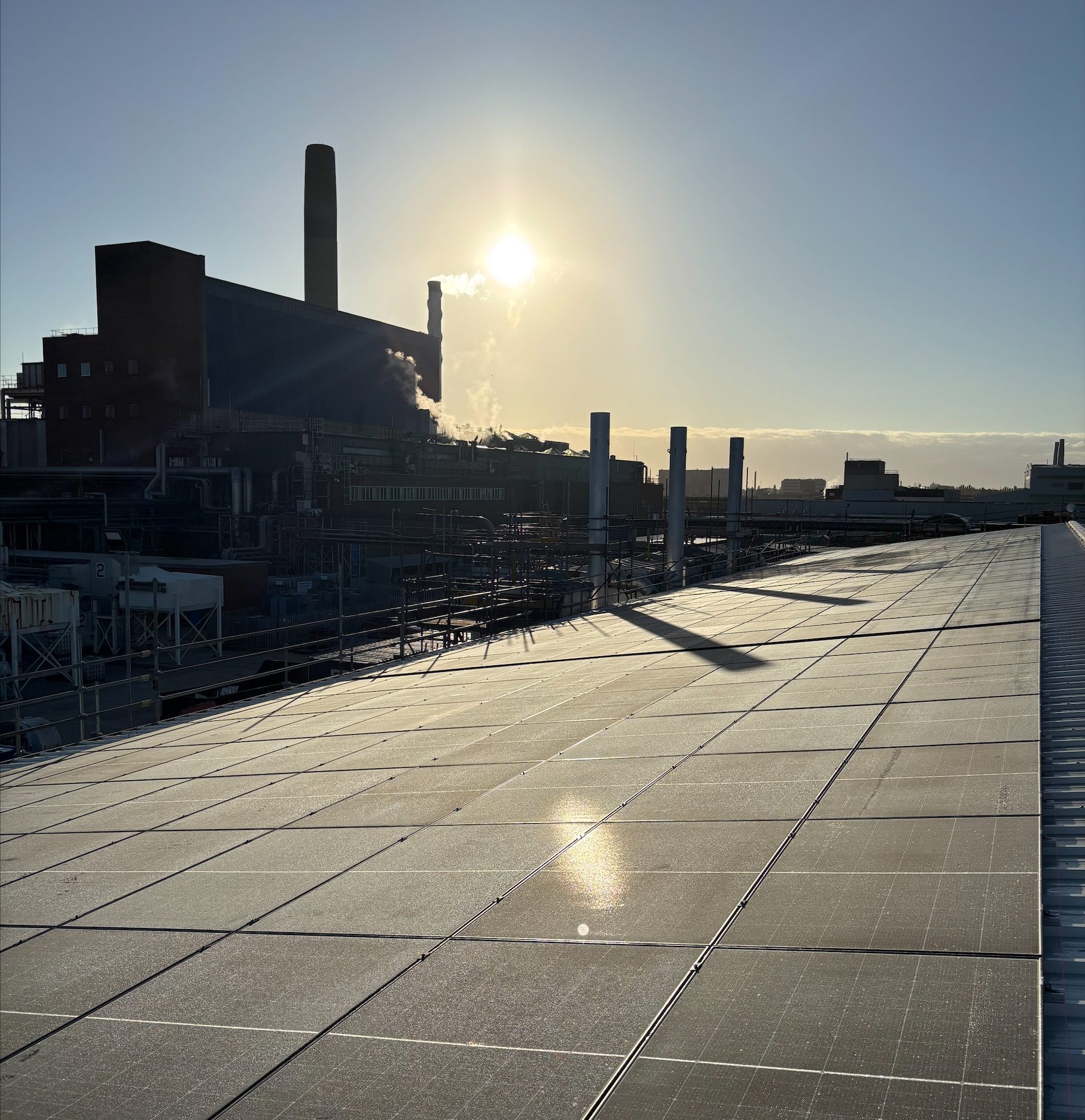
Solar Panel Financing for Businesses
Businesses across the UK are facing rising energy costs and increased pressure to reduce their carbon footprint. Commercial solar panels provide a solution that not only delivers immediate energy cost savings but also supports long-term sustainability goals.
One of the biggest barriers for many organisations is the cost of a system and the uncertainty around financing.
Whether you are a small business looking for predictable energy bills, a large multinational setting sustainable energy goals, or simply interested in government-backed support, this page will provide clear answers.
Financial Considerations and Return on Investment
Cost of a System
The cost of a commercial solar PV system varies based on system size, installation requirements, and whether it is roof-mounted or ground-mounted. A tailored feasibility assessment is essential to calculate upfront investment versus projected savings.
Expected Payback and ROI
Most businesses achieve a payback period of 3–5 years, with strong return on investment (ROI) over the system’s lifetime. With panels lasting ~25 years, this means decades of free or low-cost energy after the initial payback.


Financing Options
Businesses can finance commercial solar in several ways:
-
Buying outright: Pay the full cost upfront, own the system, keep all savings and incentives, but cover maintenance yourself.
-
Loans: Spread the cost over time, own the system, and benefit from savings and incentives, though interest applies and you handle maintenance.
-
Leases: Low or no upfront cost, pay a fixed monthly fee, and let the leasing company handle maintenance, but you don’t own the system.
-
Power Purchase Agreements (PPAs): The provider owns the panels, you buy the electricity at a set rate, with minimal upfront cost and maintenance covered, but long-term savings are shared.
Grants and Incentives
Financial grants and government solar incentives are sometimes available, though eligibility depends on region and sector. Many businesses also qualify for exported electricity payments, generating additional income by selling excess energy back to the grid.
Solar Panel Financing for Businesses
Frequently Asked Questions (FAQs)
When businesses are considering a commercial solar PV installation, there are often recurring questions about system design, financing, and long-term performance. Below, we address the most common queries with direct answers that can help your organisation make informed decisions.
1. What are the main commercial solar financing options?
Businesses can choose from a range of commercial solar financing options including loans, leases, hire purchase, and Power Purchase Agreements (PPAs). The right choice depends on whether your company wants ownership of the system or prefers lower upfront costs. Some options, such as PPAs, allow solar adoption with no capital investment, while loans and leases spread the cost of ownership over time.
2. Why is an energy consumption profile important?
Your energy consumption profile shows when and how your business uses electricity. This is crucial when sizing a solar system because it affects your self-consumption rate—the percentage of solar power used directly on-site. A well-matched system maximises savings by ensuring your solar panels generate electricity during peak demand periods.
3. What is a feasibility assessment and why do I need one?
A feasibility assessment is the first step before committing to a commercial solar project. It analyses your roof space or available land, checks mounting systems, assesses shading, reviews planning permission requirements, and evaluates financial outcomes. Without a proper assessment, businesses risk investing in systems that are oversized, underperforming, or not compliant with local regulations.
4. Are there financial grants available for solar panels?
Potentially, some businesses can access financial grants and government solar incentives. These vary depending on location, industry sector, and system size. Grants may cover part of the installation cost, while incentives such as the Smart Export Guarantee (SEG) pay businesses for exporting excess electricity to the grid.
5. Do I need planning permission for a commercial solar system?
Most rooftop solar PV installations do not require planning permission if they fall under permitted development rights. However, large ground-mounted commercial solar panel systems usually do, especially if they cover significant land or are installed near heritage or conservation areas. A feasibility assessment will confirm whether permission is needed in your case.
6. How much roof space do I need for solar panels?
The amount of roof space required depends on your system size and energy needs. As a guide, *m² of roof area can typically hold around *–* kWp of solar panels. If roof space is limited, alternatives include ground-mounted systems or solar carports.
7. What is the self-consumption rate and why does it matter?
The self-consumption rate measures how much of the generated solar electricity your business uses directly, compared to what is exported back to the grid. A higher rate increases your return on investment because the cost of grid electricity is always higher than export payments. Adding battery storage can further boost self-consumption.
8. How is system size determined for my business?
The ideal system size is based on your energy consumption profile, available roof space or land, and budget. Oversizing a system leads to excess export, while undersizing reduces potential savings. GB NRG use tools such as a solar array report to model expected generation and match this against your business’s demand.
Commercial Solar Panel Financing in the UK
Loans and Leasing
Businesses can access solar-specific loans from banks and finance providers. Some are even offered as interest-free loans for solar panels in the UK. Leasing spreads costs over fixed monthly payments.
Power Purchase Agreements (PPAs)
PPAs allow businesses to install solar with no upfront cost. Instead, you pay a fixed rate for the electricity generated—lower than grid prices. This model is ideal for organisations without the capital to purchase outright.
Grants and Incentives
Support from the UK government includes tax allowances, financial grants, and exported electricity payments. Some schemes target SMEs and sectors like manufacturing or agriculture.
Who Qualifies for Free Solar Panels?
The UK government no longer offers completely free panels. However, businesses may qualify for fully funded installations under a PPA model. Eligibility depends on roof condition, energy consumption profile, and results of a feasibility assessment.
Solar Financing with Bad Credit
Even with poor credit, businesses may still access financing. Options include PPAs, leasing, or working with providers that assess viability based on system performance rather than credit history.
Best Solar Financing Options
The best option depends on goals:
- Loans: maximise ownership and long-term savings
- Leasing: spread costs without large upfront spend
- PPAs: access solar with no upfront capital
Conclusion: Why Now is the Right Time for Solar Financing
Commercial solar panels provide measurable benefits: energy cost savings, energy security, and carbon footprint reduction. With robust warranties, minimal maintenance, and strong return on investment, solar is one of the most reliable energy solutions for UK businesses today.
Thanks to a wide range of solar financing solutions, including interest-free loans, grants, and Power Purchase Agreements, renewable energy is accessible for businesses of all sizes and credit ratings.
The sooner you begin your journey, the faster you can secure long-term savings and protect your business from rising energy costs.
👉 Get your free solar feasibility assessment today and explore the best financing options available for your business.
Solar Feasibility AssessmentTalk to us
Our team is here to help with your queries and questions. Please get in touch by calling our contact numbers, sending us an email, or filling out this form and we will get back to you as soon as possible.

